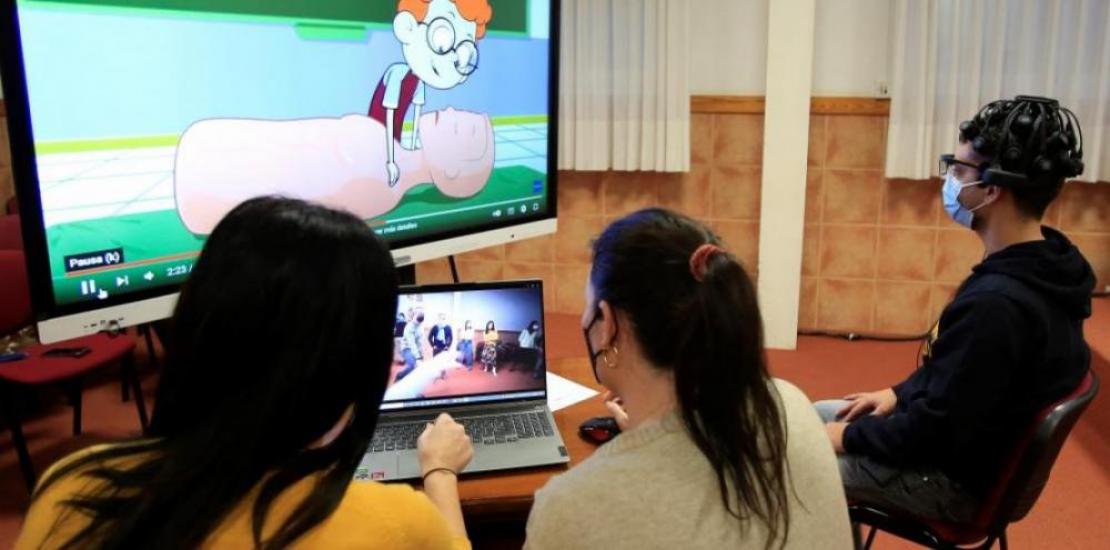UCAM has developed an application to teach cardiopulmonary resuscitation at schools
Under the direction of researchers Manuel Pardo (Health Sciences) and Rafael Melendreras (Telecommunications), in her theses, Miriam Mendoza has designed a video game to facilitate the learning of this technique in children
‘Technological applications, devices and software for teaching Cardiopulmonary Resuscitation (CPR) in children and adolescents' is the title of the doctoral thesis being carried out by Miriam Mendoza, a researcher at UCAM, which includes the development of a video game which has already been analysed and approved by health professionals and educators. In the coming weeks it will be tested by children using 'Eye Tracking'.
The video game, which has been adapted for PC, smartphone and tablet, has four levels and an assessment test. In the first screens, the child becomes familiar with the tool and the main characters of the game. In the following levels, the player encounters an emergency and is guided to learn and internalise the steps to follow, checking if the person in cardiorespiratory arrest is responding, unlocking a mobile phone and dialling the emergency telephone number, answering the doctor's questions, etc. The aim is for the child to identify a dangerous situation in real life, to understand that he or she can save a life and to not freeze up.
The telecoms doctoral student explains that "at an early age, this type of learning is easier to grasp, as children internalise certain knowledge better if it is introduced through video games". Manuel Pardo, co-director of the thesis and researcher at the Faculty of Health Sciences, stated "we will first carry out a pilot programme with the students of the schools of the Alma Mater Foundation and we will then make it available to the entire educational community". Rafael Melendreras, also director of the thesis and vice-dean of the UCAM's Bachelor's Degree in Telecommunications Engineering, stresses that "in addition to the development of new digital content (video games, XR content, etc.), the effectiveness of learning will be measured using technologies such as brain signal helmets (BCI) or eye tracking systems".




